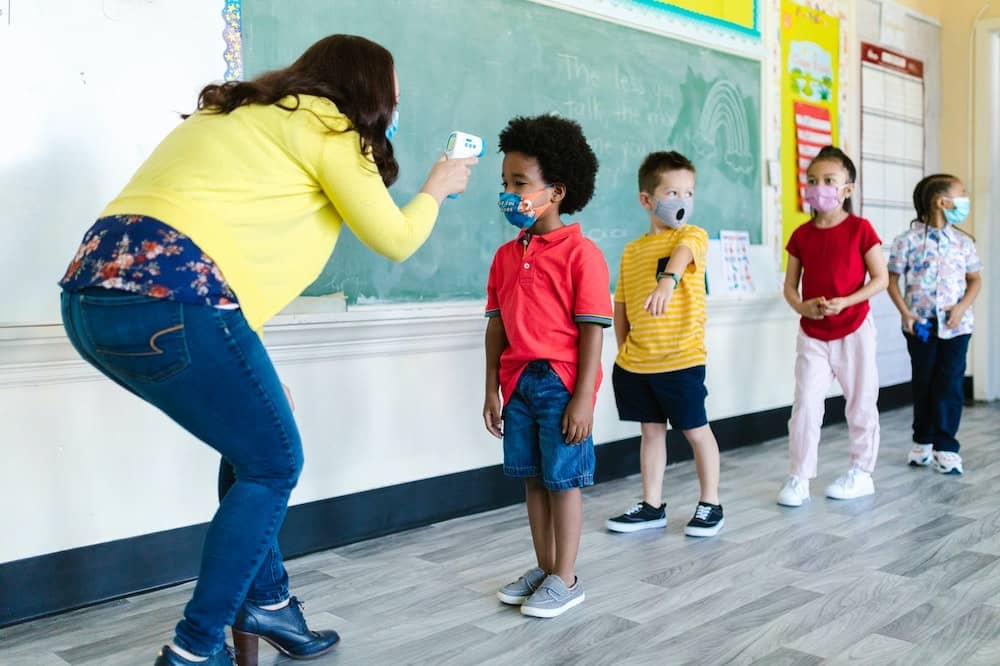It seems like the only thing we can be certain of, is the uncertainty of the pandemic. While children tend to be resilient, the uncertainty has taken its toll on them as well. Children are aware of more than we often think they are. They listen to adult conversations as well as the news. So how do we help children who have been traumatized by COVID-19?
Environment
Children tend to follow the lead of their parents. Parents who remain calm and make logical decisions based on scientific data will often have children who deal with stress more effectively. However, parents who tend to be more anxious and unsure of their decisions will have children who are more prone to traumatic stress. Even when parents are careful and reassuring, a comment from a teacher can also trigger anxiety.
Common reactions to trauma
Children who have been traumatized by COVID-19 may have more nightmares or recurring fearful thoughts related to the pandemic. They may be irritable and prone to angry outbursts. Some children may feel hopeless, sad, or even numb. COVID-19 trauma may also trigger insomnia, headaches, or stomach related issues in children. If any of these symptoms prevent your child from socializing or performing at school, it may be time to seek help.
How parents can help
Talking to a child may be the most important tool in a parent’s toolbox. To address the uncertainty of the pandemic, it is helpful for parents to check in with their children and address any questions with age-appropriate responses. Wearing masks may be scary for a child. It is important that children understand how masks can protect them from getting sick. It is also important for parents to be aware of what they say when in earshot of a child.
Hypnosis for children who have been traumatized by COVID-19
Children tend to respond well to hypnotherapy. This is because they tend to spend a lot of time using their imagination. Imagination is the language of the subconscious mind. In fact, children can be guided into hypnotic trance with relaxation techniques and imagining settings, like playing in the park. Once guided into hypnotic trance, the unconscious mind can be programmed to release trauma.
Why hypnosis works
Hypnotic trance is a highly attentive and relaxed state. Children will often report feeling relaxed and rested after a hypnotherapy session. It is common for certified hypnotists to incorporate a child’s favorite book or TV show into a story that helps the child overcome anxiety. A skilled hypnotherapist can shift a child’s perspective about the pandemic. Once their beliefs are reframed, symptoms related to pandemic trauma tend to disappear.
Children who have been traumatized by COVID-19 need help. Whether a child is having difficulty concentrating or is having unwanted thoughts, trauma related to the pandemic can be addressed. If you have noticed a dramatic change in the behavior of your child, hypnosis may be able to help. Hypnotherapy is a fast and natural way to address trauma and anxiety.

